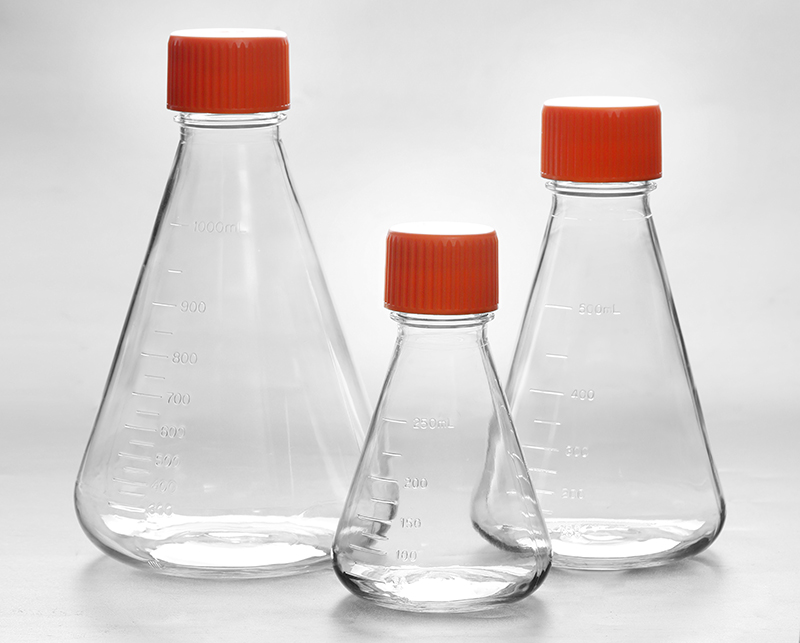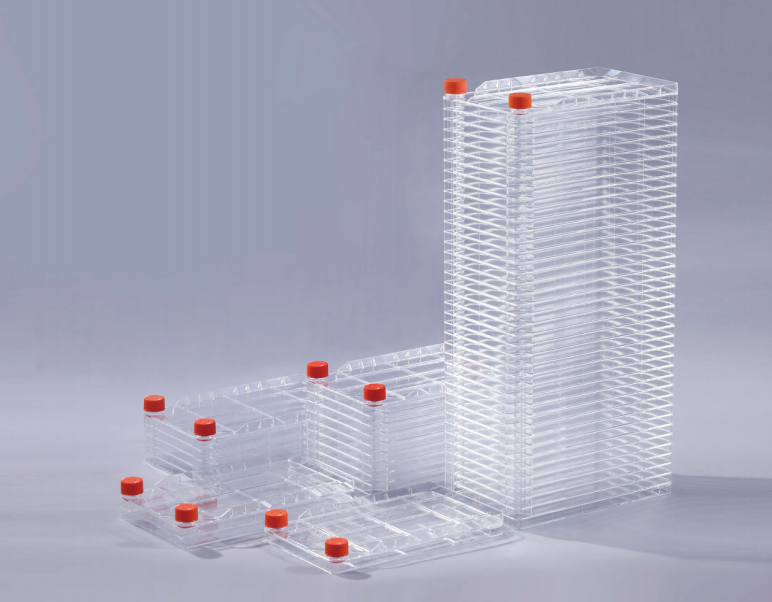您好!歡迎訪問洛陽富道生物科技有限公司官方網(wǎng)站!

Ex Vivo Expanded Circulating Tumor Cells for Clinical Anti-Cancer Drug Prediction in Patients with Head and Neck Cancer
體外擴增循環(huán)腫瘤細胞用于頭頸癌患者的臨床抗癌藥物預(yù)測
The conventional methods that seek to predict clinical treatment response are based on the number of circulating tumor cells (CTCs) present in liquid biopsies or genetic profiling of extracted CTCs. This paper presents a novel process by which CTCs can be extracted from blood samples taken from head and neck cancer patients and then expanded ex vivo to form organoids that can be tested with a panel of anti-cancer treatments. The resulting drug sensitivity profiles derived from cisplatin treatment of organoids were subsequently found to correlate with clinical treatment response to cisplatin in patients. CTCs extracted from liquid biopsies for ex vivo expansion negates the need for complicated and potentially risky biopsies of tumor material, thereby supporting the application of this procedure for checkups and treatment monitoring.
尋求預(yù)測臨床治療反應(yīng)的傳統(tǒng)方法是基于液體活檢中存在的循環(huán)腫瘤細胞 (CTC) 的數(shù)量或提取的 CTC 的基因圖譜。本文介紹了一種新的方法,通過該方法可以從頭頸癌患者的血液樣本中提取 CTC,然后在體外擴增形成可以用一組抗癌治療進行測試的類器官。隨后發(fā)現(xiàn),源自類器官順鉑治療的藥物敏感性曲線與患者對順鉑的臨床治療反應(yīng)相關(guān)。從液體活檢中提取的用于離體擴增的 CTC 無需對腫瘤材料進行復(fù)雜且具有潛在風險的活檢,從而支持該程序在檢查和治療監(jiān)測中的應(yīng)用。

The advanced-stage head and neck cancer (HNC) patients respond poorly to platinum-based treatments. Thus, a reliable pretreatment method for evaluating platinum treatment response would improve therapeutic efficiency and outcomes. This study describes a novel strategy to predict clinical drug responses in HNC patients by using eSelect, a lab-developed biomimetic cell culture system, which enables us to perform ex vivo expansion and drug sensitivity profiling of circulating tumor cells (CTCs). Forty liquid biopsies were collected from HNC patients, and the CTCs were expanded ex vivo using the eSelect system within four weeks. Immunofluorescence staining confirmed that the CTC-derived organoids were positive for EpCAM and negative for CD45. Two illustrative cases present the potential of this strategy for evaluating treatment response. The statistical analysis confirmed that drug sensitivity in CTC-derived organoids was associated with a clinical response. The multivariant logistic regression model predicted that the treatment accuracy of chemotherapy responses achieved 93.75%, and the area under the curves (AUCs) of prediction models was 0.8841 in the whole dataset and 0.9167 in cisplatin specific dataset. In summary, cisplatin sensitivity profiles of patient-derived CTCs expanded ex vivo correlate with a clinical response to cisplatin treatment, and this can potentially underpin predictive assays to guide HNC treatments.

晚期頭頸癌 (HNC) 患者對鉑類治療反應(yīng)不佳。因此,用于評估鉑類治療反應(yīng)的可靠預(yù)處理方法將提高治療效率和結(jié)果。本研究描述了一種通過使用 eSelect 預(yù)測 HNC 患者臨床藥物反應(yīng)的新策略,eSelect 是一種實驗室開發(fā)的仿生細胞培養(yǎng)系統(tǒng),使我們能夠?qū)ρh(huán)腫瘤細胞 (CTC) 進行離體擴增和藥物敏感性分析。從 HNC 患者中收集了 40 份液體活檢,并在 4 周內(nèi)使用 eSelect 系統(tǒng)離體擴增了 CTC。免疫熒光染色證實 CTC 衍生的類器官對 EpCAM 呈陽性,對 CD45 呈陰性。兩個說明性案例展示了這種策略評估治療反應(yīng)的潛力。統(tǒng)計分析證實,CTC 衍生的類器官中的藥物敏感性與臨床反應(yīng)相關(guān)。多變量邏輯回歸模型預(yù)測化療反應(yīng)的治療準確率達到93.75%,預(yù)測模型的曲線下面積(AUCs)在整個數(shù)據(jù)集中為0.8841,在順鉑特異性數(shù)據(jù)集中為0.9167。總之,患者衍生的 CTC 的順鉑敏感性分布與體外擴展的順鉑治療的臨床反應(yīng)相關(guān),這可能支持預(yù)測性分析以指導(dǎo) HNC 治療。預(yù)測模型的曲線下面積(AUCs)在整個數(shù)據(jù)集中為 0.8841,在順鉑特定數(shù)據(jù)集中為 0.9167。總之,患者衍生的 CTC 的順鉑敏感性分布與體外擴展的順鉑治療的臨床反應(yīng)相關(guān),這可能支持預(yù)測性分析以指導(dǎo) HNC 治療。預(yù)測模型的曲線下面積(AUCs)在整個數(shù)據(jù)集中為 0.8841,在順鉑特定數(shù)據(jù)集中為 0.9167。總之,患者衍生的 CTC 的順鉑敏感性分布與體外擴展的順鉑治療的臨床反應(yīng)相關(guān),這可能支持預(yù)測性分析以指導(dǎo) HNC 治療。

In conclusion, this study developed an efficient and reliable method by which CTCs from liquid biopsies of patients with locally advanced HNC patients can be isolated and expanded ex vivo using the eSelect system. Drug sensitivity assays conducted on the expanded CTC-derived organoids were subsequently correlated with clinical response in patients with HNC. The results highlight the potential of this method to assist clinicians in assessing and predicting treatment response in HNC, and more extensive prospective controlled studies are warranted to validate these findings further and to improve this process for future application in clinical settings.
總之,本研究開發(fā)了一種有效且可靠的方法,通過該方法,可以使用 eSelect 系統(tǒng)從局部晚期 HNC 患者的液體活檢中分離和擴增 CTC。隨后對擴展的 CTC 衍生類器官進行的藥物敏感性測定與 HNC 患者的臨床反應(yīng)相關(guān)。結(jié)果突出了這種方法在幫助臨床醫(yī)生評估和預(yù)測 HNC 治療反應(yīng)方面的潛力,需要進行更廣泛的前瞻性對照研究來進一步驗證這些發(fā)現(xiàn)并改進這一過程,以便將來在臨床環(huán)境中應(yīng)用。
關(guān)鍵詞: circulating tumor cells,drug sensitivity,ex vivo expansion,head and neck cancer,response to therapy,循環(huán)腫瘤細胞,藥物敏感性,離體擴增,頭頸癌,對治療的反應(yīng)
來源:MDPI https://www.mdpi.com/2072-6694/13/23/6076/htm

上一篇: PETG材質(zhì)的血清瓶成為趨勢